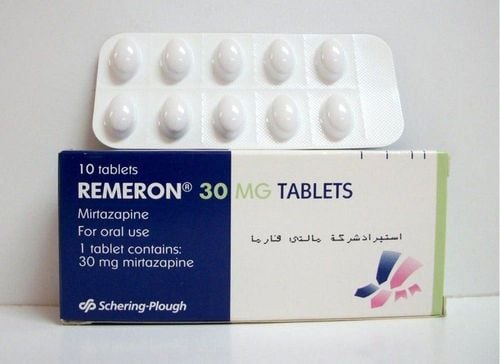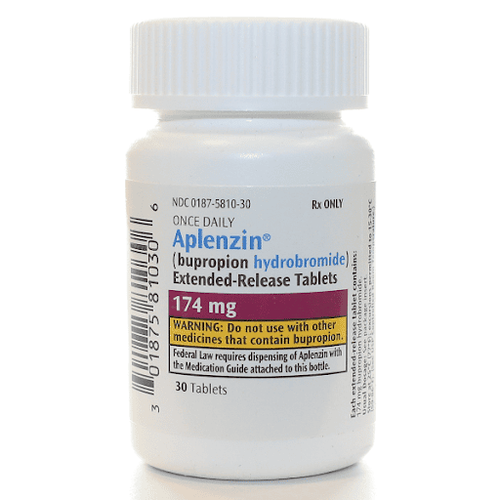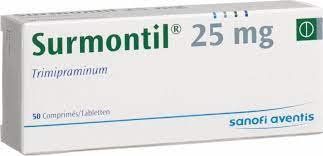This is an automatically translated article.
Drug treatment for depression can take several months to show visible results. Your doctor may have you try different medications in different amounts and doses to find the one that works best for you. There are several important things to consider when taking an anti-anxiety medication.
1. Depression is a fairly common disease?
Feeling sad or anxious is not unusual; it happens to most of us. But constant feelings of hopelessness, frequent tears, trouble eating and sleeping, and separation from family and friends could mean you're suffering from depression. According to the National Institute of Mental Health (NIMH), major depressive disorder is one of the most common mental illnesses. Depression can affect anyone regardless of age, race, or socioeconomic status.
The exact cause of depression is not fully known. In general, depression does not have a single cause, and the reasons for depression are often difficult to identify. Factors that increase the risk of depression include:
Biological and genetic characteristics; Other diseases; Traumatic events such as job loss, divorce, stress, trauma, or violence; Severe grief after the death of a loved one; Side effects due to prescription drugs; Alcohol use and substance abuse; Fortunately, however, for most patients, medical treatment can be very effective and can “save” their lives. Good options for treating depression include drug treatment, psychotherapy such as cognitive behavioral therapy (CBT), or a combination of both. The American Psychiatric Association states that antidepressants are recommended as the initial treatment of choice for most patients with mild to severe major depressive disorder.

SSRIs thường được lựa chọn như một loại thuốc đầu tay điều trị trầm cảm do hiệu quả và ít nguy cơ tác dụng phụ hơn so với các loại thuốc cũ.
2. Be careful when taking antidepressants
Interactions between antidepressants and other medications: Antidepressants and anxiety medications can react unpredictably with other medications, including some over-the-counter medicines such as ibuprofen. Always read the patient information leaflet that comes with your medication to see if there are any medications you should avoid. Medication use in pregnancy: As a precaution, antidepressants are generally not recommended for most pregnant women, especially in the early stages of pregnancy. This is because they can be dangerous to your baby. But there may be exceptions if the risks posed by depression (or other mental health conditions) outweigh any potential risks of treatment. If you're pregnant with depression, you should discuss the pros and cons of antidepressants with your doctor. Pregnancy: The use of antidepressants in nursing women is generally discouraged. However, use may still be considered in situations where both the benefits of treating depression (or other mental health conditions) and the benefits of breastfeeding outweigh the potential risks. hidden. Children: The use of anti-anxiety medications is generally discouraged in children and young adults under 18. This is because there is evidence that, in rare cases, children can develop intentions. suicide and self-harm behavior in this age group. There is also concern that the use of the drug may affect brain development in children and young adults. Alcohol users: You should be cautious about drinking alcohol if you are taking antidepressants, as alcohol itself is a depressant and drinking can make your symptoms worse. If you drink alcohol while taking antidepressants including tricyclic antidepressants (TCAs) or monoamine oxidase inhibitors (MAOIs), drowsiness and dizziness may occur. You're less likely to experience adverse effects if you drink alcohol while taking an SSRI or a serotonin-noradrenaline reuptake inhibitor (SNRI), but it's still best to avoid alcohol while taking your antidepressant. . Other antidepressants: Never take 2 different types of antidepressants, such as SSRIs and TCAs, unless advised to by your doctor. This is because taking certain antidepressants together can make you feel very uncomfortable and even life-threatening. If indicated from one type to another, the dose of the first antidepressant will usually be tapered off before starting the second. Driving and operating machines: Some antidepressants can cause dizziness, drowsiness, and blurred vision, especially when you first start taking them. If you experience these problems, you should avoid driving or using tools and machines while taking this medicine.

Thận trọng khi dùng thuốc trầm cảm ở trẻ em do nguy cơ phát triển một số hành vi như tự tử hay tự làm hại bản thân.
3. Use caution when taking certain anti-anxiety medications
3.1 Selective serotonin reuptake inhibitors (SSRIs)
SSRIs may not be suitable if you have:
Bipolar disorder and you are in a manic episode (a period when you are extremely excitable), although medication may be helpful for a depressive episode; a bleeding disorder or if you are taking medicines that make you more likely to bleed (such as warfarin); Type 1 and type 2 diabetes; Seizures - SSRIs should only be used if your epilepsy is well controlled and should be discontinued if your seizures get worse; Kidney disease.
3.2 Serotonin-norepinephrine reuptake inhibitors SNRIs
SNRIs may not be appropriate if you have a history of heart disease or you have high blood pressure that is not well controlled.
3.3 Tricyclic antidepressants TCAs
TCAs may not be appropriate if you have:
History of heart disease; Recently had a heart attack; Liver failure; An inherited blood disorder called porphyria; Bipolar disorder; Schizophrenia; Hyperplasia of your adrenal glands causing high blood pressure (pheochromocytoma); Prostate enlargement ; Narrow angle glaucoma; Epileptic.

Bệnh nhân bị bệnh gan chống chỉ định dùng thuốc chống trầm cảm ba vòng TCAs
4. Beware of depressive drug withdrawal syndrome
Antidepressant discontinuation syndrome can occur if you suddenly stop taking antidepressants. Fortunately, antidepressant discontinuation syndrome is not dangerous or life-threatening. It usually goes away within 1 week. Symptoms include:
Anxiety; Boring; Irritability; Tired; Headache; Vomiting, nausea; Dizzy. If you accidentally forget to take a dose of your antidepressant, start taking it again as soon as possible. If you run out of medicine, call your doctor so they can refill your medicine. If you decide to stop taking your antidepressant on your own, talk to your doctor about why you're stopping. For example, does the drug cause unpleasant side effects? Cost too expensive? Your doctor may be able to help you by changing your dosage or recommending a different antidepressant.
If your doctor recommends you take a lower dose of the drug and you are experiencing symptoms of antidepressant discontinuation syndrome, talk to your doctor. You may need to take a higher dose for a period of time before you quit smoking completely.
To avoid the occurrence of antidepressant discontinuation syndrome, take your medication exactly as directed by your doctor. If you want to stop taking your medicine, talk to your doctor first. Your body often needs time to adjust to lower levels of the drug. That's why your doctor may recommend cutting back on your antidepressant rather than stopping it suddenly.

Chóng mặt là một triệu chứng của hội chứng ngưng thuốc trầm cảm
If you suspect yourself or a loved one has signs of depression, the patient needs help and advice from a doctor to get treatment, to avoid the bad consequences that the disease causes. Psychology Clinic - Vinmec International General Hospital officially came into operation in April 2019, has the function of examination, consultation and outpatient treatment of psychological problems and psychological health. With modern equipment, Vinmec Psychological Health Clinic is currently cooperating with experienced professors and experts:
MSc. Doctor Nguyen Van Phi - Psychologist, Vinmec Times City International Hospital: with 7 years of experience working as a lecturer in Psychiatry - Hanoi Medical University, Doctor Psychiatrist at Hanoi Medical University Hospital & Central Geriatric Hospital, and a member of the Vietnam Psychiatric Association. MSc. Dr. Pham Thanh Luan - Psychiatrist, Vinmec Times City International Hospital: with 5 years of experience in research and treatment of Psychiatric diseases, trained at prestigious universities professional practice in the French Republic. MSc. Doctor Nguyen Trong Hien - Psychiatrist, Vinmec Times City International Hospital: with 6 years as a lecturer in the Department of Psychiatry - Hanoi Medical University and Central Geriatric Hospital, together with Dr. Experience in research and treatment of diseases in Psychiatry such as: Emotional disorders, stress related disorders and body dysmorphic disorders, developmental disorders in children, adolescents & childbirth .... Along with the combination of implementing psychological tests, intensive psychotherapy for diagnosis and treatment, in order to bring the best medical examination and treatment effect.
Please dial HOTLINE for more information or register for an appointment HERE. Download MyVinmec app to make appointments faster and to manage your bookings easily.













